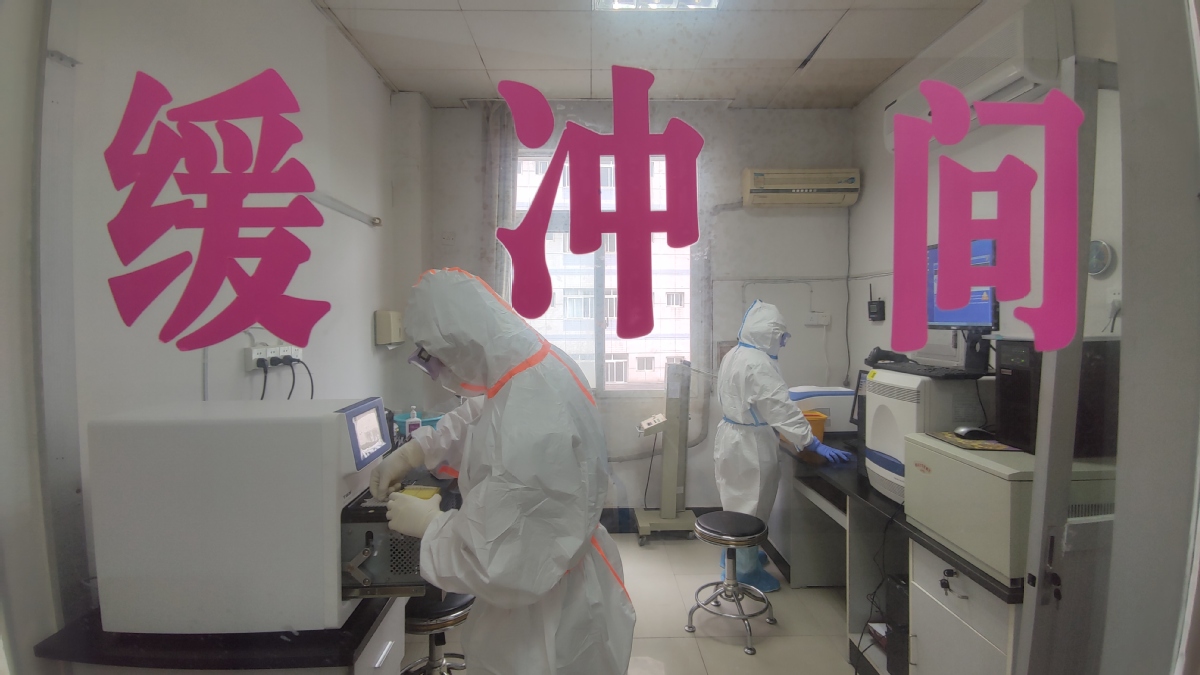New test kits give answers within 45 minutes


Feng Luzhao, a researcher from the Chinese Center for Disease Control and Prevention, said at a news briefing last month that the average waiting time for nucleic acid testing results in China is about two to three hours, with a relatively high accuracy rate.
However, the time and accuracy may vary for test kits produced by other countries.
Another common issue with PCR nucleic acid tests is that they are prone to false results. Feng said the accuracy depends heavily on the quality of the test kit, how long a patient has been infected, and how rigorously the samples are collected, transported and processed.
Wang Jianbin, a researcher at the Center for Life Sciences jointly operated by Tsinghua University and Peking University, said a typical nucleic acid test kit has three components: the extraction reagent; enzymes and supporting chemicals; and primers.
The extraction reagent and supporting chemicals are genetic and can be found in other test kits, but the primers are uniquely designed to detect a specific pathogen. On Jan 21, Chinese scientists published genetic information about the primers, paving the way for other countries to develop their own kits.
Wang Jianbin said stepping up production too quickly could lead to quality control issues, because test kit manufacturers may not have the time or resources to optimize their products. This issue was especially prevalent during the early days of the outbreak in China.
Zhang said overworked staff members present another challenge that could hinder the accuracy of tests, adding, "If front-line medical workers are exhausted or not familiar with the test kit, they may not follow the detailed instructions properly."























